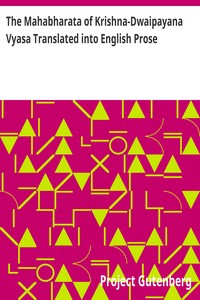The Mahabharata of Krishna-Dwaipayana Vyasa Translated into English Prose: Vana Parva, Part 1
Bookshelves: Culture/Civilization/Society, Literature, Religion/Spirituality/Paranormal, Hinduism

Summary
"The Mahabharata of Krishna-Dwaipayana Vyasa Translated into English Prose" by Kisari Mohan Ganguli is an epic text originally composed in Sanskrit, most likely during ancient Indian times, around the early centuries of the common era. This foundational work of Indian literature intricately portrays the dynamics of the Kuru dynasty, particularly focusing on the conflict between the Pandavas and the Kauravas, which leads to the great war of Kurukshetra. The narrative weaves through themes of duty, righteousness, and the consequences of moral decisions, covering the trials and tribulations faced by both families. The opening portion introduces the aftermath of a fateful dice game, where Yudhishthira and his brothers, the Pandavas, face humiliation and are forced into exile. The narrative flows through the chaos and despair of their departure from Hastinapura, highlighting the sorrow of the citizens who lament their absence. As the Pandavas journey into the forest, Yudhishthira, showcasing his nobility, urges his followers to remain in Hastinapura to support their loved ones there. This segment sets the stage for their struggles in exile, introducing motifs of loyalty, friendship, and the impact of fate, while also foreshadowing the inevitable confrontations that await them in their quest to reclaim their rightful place. (This is an automatically generated summary.)
 LibraryManager
LibraryManager